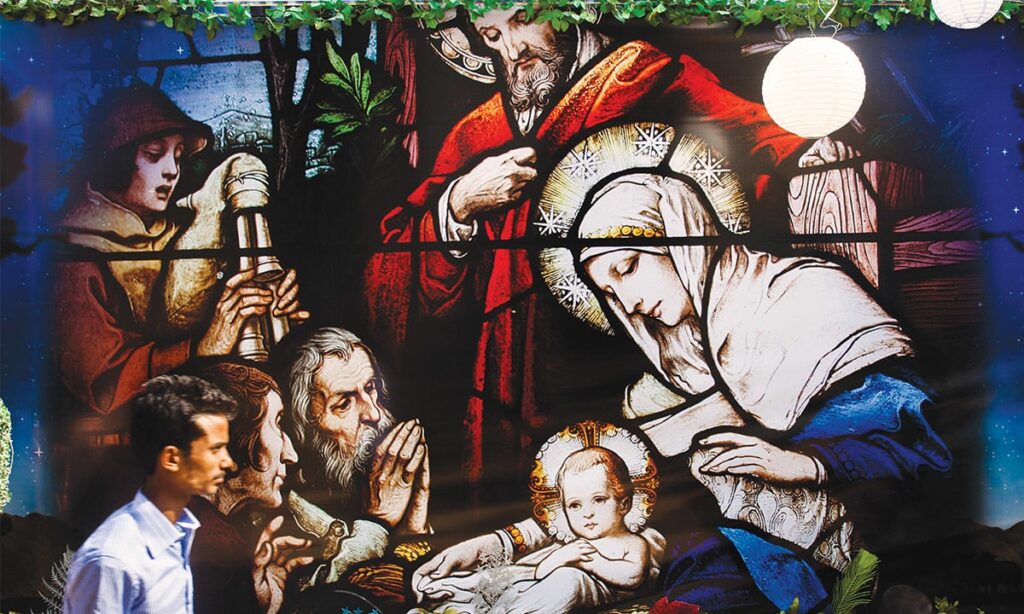
Anila Ilyas was wide awake, keeping an eye on the road outside from her fifth-floor apartment. All her belongings were packed and she was trying her best to stop her three teenage sons from falling asleep. When she saw a group of policemen arrive at her apartment building in Bangkok’s Pracha Uthit area, on that night in September 2015, she moved quickly but silently and evacuated from the back door along with her children.
Forty-five-year-old Anila was an Urdu teacher in a missionary school in Lahore before she left for Thailand in September 2013, joining thousands of Pakistani Christians living there illegally. They are constantly in hiding or on the run to escape arrest, detention and deportation. After arriving in Bangkok, Anila, too, had changed more than 10 houses.
In the Pracha Uthit building, 35 Pakistani Christian families lived in single-room apartments — 66 people were arrested from there that night for overstaying in Thailand.
“We cannot go out because of the fear that the police may arrest us,” says Anila. (This is not her real name — which is being held back to protect her from arrest). “We force our children to keep their voices low to avoid detection by police. Neighbours make a complaint to the police if our children make a noise,” she says in a phone interview from her latest hiding place in Thailand.
Language barriers and illegal status together hamper these migrants from getting jobs. Anila works as a teacher to make ends meet while her husband has remained unemployed since their arrival in Bangkok.
Immediately after arriving in Thailand, mostly on visit or transit visas, Pakistani Christians approach the local office of the United Nations High Commissioner for Refugees (UNHCR), hoping they will be resettled in Europe, Australia or North America. Though they start receiving some financial support from charity organisations to buy their daily meals but usually they have next to nothing to pay for other utilities. “Paying the monthly house rent is the biggest challenge,” says Anila. A single-room accommodation can cost as much as 2,400 baht (7,250 rupees) a month.
World Watch Monitor, an international Christian news wire, notes that about 11,500 Pakistani Christians have approached the UNHCR to get refugee status in recent years. Though exact country-wide statistics are difficult to find out, a large number of these requests have been filed in Sri Lanka, Malaysia and Thailand.
The Thai government, however, does not want Pakistani Christians to enter its territory. “[It] has made it extremely difficult for Pakistani Christians to obtain Thai visas,” says Pastor Mubarak Masih, 40. If a Pakistani Christian manages to obtain the visa, he is highly likely to be found out at a Pakistani airport since his passport shows his religion, says Mubarak Masih who arrived in Thailand in 2013 with his wife, two sons and one daughter. Once detected as Christians, the passengers are often off-loaded from flights leaving Pakistan. Those who still manage to fly out are taken to the Immigration Detention Centre (IDC) once they arrive at their destination. Their relatives or UNCHR have to bail them out.
Mubarak Masih used to run a small church from his home in Lahore’s Youhanabad area and was “always fearful for security”. Those were not idle fears. In March 2015, two suicide bombers attacked two churches in Youhanabad, killing 15 people and hurting more than 70 others.
Another constant in the pastor’s life was a Punjabi word – chuhra – used as a derogatory term to categorise people in his racial group. Difficult to translate, the word connotes dark skin, low social status and untouchability.
In Thailand, he and other Pakistani Christians are facing another identity crisis. “Even taxi drivers call us ‘bomb’ and ‘Bin Laden’ when they find out we are from Pakistan,” he says.
This article was published in the Herald’s September 2016 issue. Read more here.